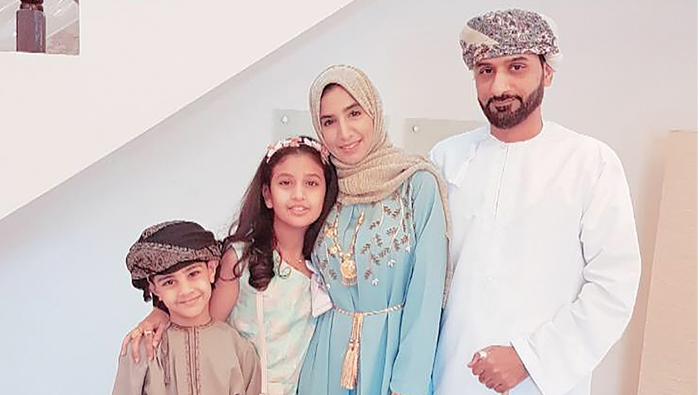
Muscat: More than 350 orphans and abandoned children have found loving parents and safe homes, as part of a government foster care scheme. The scheme, run by the Ministry of Social Development, is open to all citizens.
Parents who have successfully fostered children have appealed to others to consider giving an abandoned or orphaned child new hope.
Ibtisam Al Riyami said her life has been filled with joy ever since she adopted her two children, Maysam, 8, and 6-year-old Omar.
“They brought me love and joy like never before. My children beautify my life in every way,” Al Riyami told the Times of Oman. Al Riyami describes her adoption journey as “beautiful and enriching in all its ups and downs”.
“There are children in Oman who are in desperate need of a loving home,” she said.
The Ministry of Social Development is working hard to find safe homes and loving parents for abandoned and orphaned children, and thanks to people like Al Riyami, some 352 children have been fostered by families in the Sultanate, according to the Director of the Child Affairs Department, Ministry of Social Development, Suad bint Said Al Yazidi. Prospective foster parents must undergo a medical examination and training courses, in addition to regular surprise visits to their homes by the ministry staff.
“Overall, the number of children who have found foster families in Oman has reached 352. Muscat Governorate has the highest number of such children at 207,” said Al Yazidi.
In addition to a thorough check of the applicants, the ministry’s surprise visits between April 1 and September 30 last year averaged at almost eight inspections a week across most areas of the Sultanate.
Al Yazidi spoke to the Times of Oman regarding the regulations and procedures of fostering a child in the Sultanate, “The couple must be Muslim and Omani, and in some cases, a single woman can also foster a child.”
“Additionally, according to Ministerial Decision No, 49/2007 regarding the regulations of family care and foster families, the applicants must be between 25 and 55 and must be able to take care of the child socially, psychologically and economically,” said Al Yazidi.
Couples must also pass a medical examination to show that they do not have any infectious diseases or mental, psychological and behavioural disorders.
Once accepted, the foster family should expect “regular follow-up visits with or without the knowledge of the family, and the couple should also provide medical reports indicating the health status and growth of the child, and school reports in case of school enrollment”, Al Yazidi added.
“As a result of research conducted by the authorities, it was revealed that foster families need financial assistance to take care of the child until he/she can financially support himself/herself,” the Director of the Child Affairs Department added.
The ministry also ensures that the child is protected in case of the death of the parents, as the couple must “provide the name of a relative who will be able to take care of the child in the event of any change in the family, such as a divorce, death or illness”, added Al Yazidi.
Deciding to adopt a child is not an easy decision; therefore, research is critical in ensuring that the parents are prepared.
Al Riyami advised anyone that is considering adoption to “get to know the adoption process well, read about it, and meet people who have adopted kids”. “My message is to adopt consciously, with the child’s well-being as your top priority,” she said.
Al Riyami is happy with her decision to adopt saying, “I wouldn’t have built my family any other way.”
However, she does recognise that some members of the society may not accept it. “Adoption is not for everyone, but people should support those who are thinking about it. Sometimes a word or a message is all they need.”
Al Riyami and her husband may consider adopting more children in the future, “We may adopt again. Maysam and Omar want us to adopt all the children in the world.”